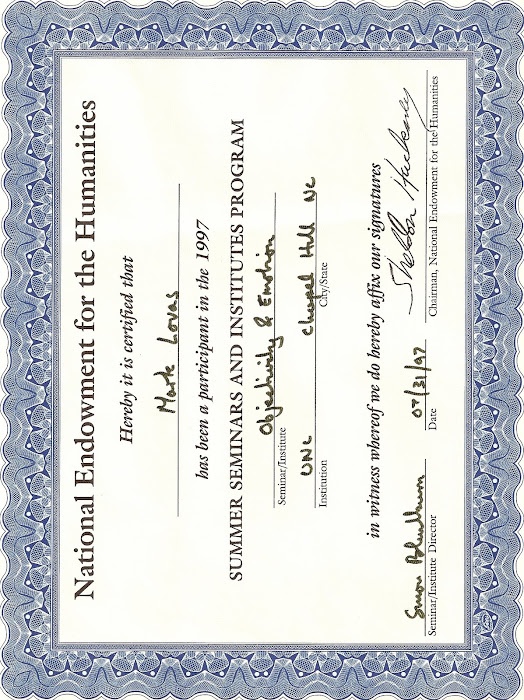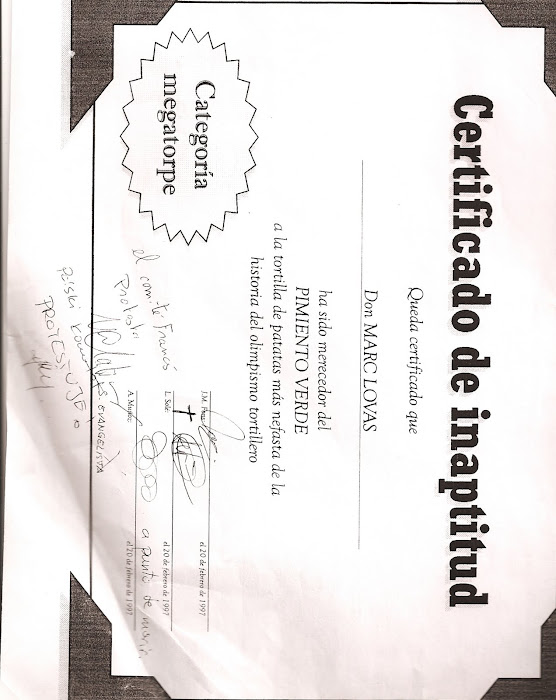Sunday, August 30, 2009
El Paso's Inadequate Public Transport
Saturday, August 29, 2009
Poverty in El Paso Texas
Lack of Imagination in El Paso, Texas
Friday, August 28, 2009
Unfriendly, Unpleasant El Paso, Texas
Sunday, August 23, 2009
El Paso, Texas
Thursday, August 20, 2009
Wednesday, August 19, 2009
today
Tuesday, August 18, 2009
angry and primitive
Monday, August 17, 2009
freedom my ass
Sunday, August 16, 2009
out of fairness to Europeans...
Friday, August 14, 2009
writing from El Paso
Wednesday, August 12, 2009
Civilisation Versus Barbarism
Wednesday, August 5, 2009
the stupidity and inhumanity of AT and T
Cao for Now....
Dear Friends and Colleagues,
As I come to the end of my stay in Austria, I am filled with many ideas and suppressed longings. It is hard for me to find words, but I feel I must say something. Please forgive me for the inadequacy of my language. I hope you will get some inkling of my true thoughts.
The last year has been difficult. I have been living in a cold, noisy apartment. It was not cheap. My earnings have been so meager I have found it difficult to pay bills for basic necessities such as heat and health insurance. Sometimes CEF forgot to pay me. And, oddly enough, I got no apologies from the woman who likes to say that she is the boss, the person with ultimate responsibility for everything. I did, however, get profuse apologies from an individual who seems to work very hard—and who doesn’t scream or shout or self-indulgently guffaw.
What I have I learned? Am I better?
I have learned that hard work does not necessarily pay. I have learned that one should
never move to a country trusting the good will of an employer. One should always have
a contract.
I have seen students who genuinely wanted to learn English, for a variety of
reasons. Sometimes their reasons were confused, and sometimes the only reason
was that it was what the boss wanted, but I would not say that most of
my students have a slave’s mind-set.
On the contrary, it is not primarily the students I met who fail to understand what
freedom is. That failure rather belongs above all to the upper level managers at CEF
and, indeed, those who run the other companies where my students are employed. I say
that managers fail to understand freedom (and the correlative notion of responsibility)
because they engage in excessive control of their employees.
Excessive control suggests distrust, and a failure to respect the autonomy of workers. And, I confess, I simply think we don’t need any bosses. People are capable of that degree of self-control. I can see what needs doing, and I can do it—without interference from above. And if a manager is excessively on the look-out for “mistakes”, eager to point them out, that takes away an employee’s respect and diminishes everyone involved. In fact, I would say it is petty and mean-spirited. Someone of a psychoanalytic bent might say that it shows that the manager, sub-consciously recognizes that the situation is unfair, that the worker or teacher is being exploited, that the profits are not being shared fairly, and so the manager knows very well that the employee is being asked to do more than the company is owed.
Two examples of what I mean by excessive control: At CEF, the lady who calls herself my boss goes nuts every time I am late. Actually, I have rarely been late. But, she does not know that. And, every time I am late, she gives me a little lecture as if I were thirteen years old and had never had a job in my life.
Well, actually, now that I think about it, it seems like she lectured me twice on each individual occasion that she knew I was late. Every time I was late and she knew it, I had to endure a condescending lecture twice. The last time was the most irksome, “Mark, I know you have a problem, but you are cutting into my profits!”.-- NO!! (-: o-: Ha! Ha! Ha! (-: she didn’t really say that bit about profits, but it was just under the surface of what she did say. The truth is that she did say that I had a problem—referring to the fact that my father was sick recently, and for that reason I felt obligated to return to the United States. I also note in passing, that this one oblique reference to my father’s health condition is what passes for sympathy and human understanding at the Vienna Branch of the Institute Christian Ernst Fuchs.
Is it possible that I am overly sensitive? Perhaps the lady who would be called “boss” had only made a bad translation from German. Perhaps her thought was indeed kind. My response: Not likely. And, if somehow it was a sort of mistranslation, all the more reason to doubt the lady’s competence to be running an institution which represents itself to the world as a language school. Competence in a second language is precisely measured by one’s ability to respect such niceties. If Frau Boss can’t manage to speak polite English, then that tells you something about the Institute Christian Ernst Fuchs.
(And it’s not just me who doubts the lady’s sincerity. As one student said to me after a conversation with Frau Boss: She’s only pretending to be nice to me because she knows I work for a big company and she’s thinking about money.)
But I have to add: My experience in Central Europe in the past twelve years has been that people do not know what respect is. My so-called boss at the so-called Institute Christian Ernst Fuchs cannot possibly treat me or anyone else at CEF with the respect I or they deserve because she herself probably does not know what respect is, and has probably never experienced it. Respect comes from working together with people as equals, and is incompatible with constant paranoia about who is doing more or less work. Respect means trust; and an obsessive concern with profits destroys trust. (Here in my own words I have just endorsed the traditional leftist value of solidarity between human beings, the value of our common humanity.)
A second example of excessive control: at a large insurance company where I have taught, the students tell me that their performance is frequently monitored. They must set goals and they must meet them. They must make constant “improvement”—that is improvement measured by the Procrustean measure of benefits to the stockholders of the company—not the society at large. Oddly enough, this mechanistic and anti-social mind-set was applied to the teaching of English. After forty hours of English lessons, every student must prove progress by scoring higher on a test. Even more oddly, the test they took was the very same multiple choice test that they took before they began their course. (A university linguistics professor who I happen to know, a teacher with many years of experience teaching English as a Foreign Language has told me this is bad pedagogy: You never give the same test twice.) Of course the test itself is also degrading. Intelligent educated adults who have genuine abilities in English are having their skills measured by the most reductive, idiotic, mechanistic of tests. The idiocy and cruelty of that fact takes my breath away. And the way in which we administered the test was also insulting and degrading for everyone involved—behaving as if the students would cheat if they were not observed! That fact alone is enough to show the extremely anti-cultural nature of CEF.
However, there is a second way in which the Austrians I know seem un-free, and here they illustrate a general phenomena of modern society pointed out by the Frankfurt School, so we shouldn’t think this is a uniquely Austrian problem. (I have in mind Adorno’s classic essay on “leisure time”, and Fromm’s “Escape from Freedom”.) The basic point is this: if you spend your life doing a job that doesn’t bring you respect, you can’t get it back in your free time. I’ve known students who delighted in their holidays, and no other subject interested them so much—except talking about how at work they were not treated with respect. Most people in Austria seem to live for their generous holidays and the weekends. Some of them collect cars or motorycles. But such pursuits cannot win back your self-respect if you lose it during the work week. (In truth my car-collector student seemed happy at work, but in my mind there still remains the question whether his leisure time activity isn’t deeply frivolous.)
An error I did sometimes see among students was a tendency, not fully fulfilled in any student, but present as a threat for most of them, the tendency to identify one’s self totally with one’s company, and with the products one sells. This too destroys the self and makes any notion of freedom trivial. I told my students that they are learning English for themselves, not for their company, because once they know English they can use it for many purposes. But if one only learns so-called Business English, one will not allow one’s self to be enriched by the potentialities of a different culture.
Another error, presciently described by Fromm, is a love of disconnected facts, without any organizing theories or insights. This is a deliberate artifact of so-called media outlets. Whether it is done to make us mindless or done because journalists are themselves mindless does not matter. The point is that people fear lively discussion and controversy.
In my students’ case, I sometimes witnessed a general dogmatism and fear of new ideas. At any rate, that was my experience during my classes at a large insurance company where I tried to find interesting things to read and discuss. To give this observation some perspective, it is also true that university students can be dogmatic, but with an older adult situated in the workplace, an older adult who has a degree (and especially a higher degree) there is a kind of confidence and creativity in finding ways to reject any new ideas. (Indeed, there is as well a Cerebus for this Charybdis: Sometimes people are too receptive to new ideas. I’ve seen that too—both in Vienna and elsewhere--but, oddly, it seems less prominent than dogmatism.)
When people have a degraded notion of education and its place in culture
and when their very notion of a good life is equally degraded, then there is no chance that
they can use their powers for good. Any good which such people may happen to create
can only be a matter of chance. But to see education and knowledge merely as things
we can sell to a boss is to degrade them, and to degrade ourselves. It means
allowing our very selves to be defined by other people, people who have happened to
have risen to the top of the heap—and heaven forbid that we should ask how they got
there!
Last year I did have the good fortune to come across a German translation of Eric
Fromm’s classic work (which he wrote in English!!) “Escape from Freedom”. I can only
recommend it to all of my friends and acquaintances. (Erich Fromm, Die Furcht vor der
Freiheit.) Fromm details many of the pathologies I have witnessed in Austria, and
especially at the For-Profit Center which calls itself “Institut CEF”.
And I can also recommend Hannah Arendt’s classic work, “Eichmann in
Jerusalem; A Report on the Banality of Evil”. Both of these works were originally
written (by German speakers!) in English; but there are German translations.
Arendt’s portrays Eichmann as a man who—above all—wanted success and
social status—very much like many people we meet everyday. Arendt’s portrait of
Eichmann is equally a portrait of all those managers who value nothing like success, and
are incapable of recognizing any other values. (For those who don’t know or who have
forgotten: Eichmann arranged the transport of people to the Nazi death camps. He was a
manager and he played a key role in the Holocaust. He was sentenced by a court in
Jerusalem and he was hung from the neck until dead)
Indeed, what Eichmann said about Hitler is exactly the same level of
sophistication as the ordinary person’s thinking about Bill Gates: He must be important
because he got to the top. And who do I mean by “the ordinary person”? My students in
Austria and Slovakia have told me this. And it would seem to be the implicit assumption
of the American textbook manufacturers who actually include an essay by Bill Gates
in textbooks which teach literature—an art form—to young people. So deep is the
universal moral degradation of our societies.
(As one student remarked to me during a discussion about the Profit Center CEF:
Some people get to the top by stepping over the corpse of their dead grandmother!!!)
As I leave CEF, I find myself thinking of the other language schools I have known, and
how they all, without exception, exploit their teachers, and all unthinkingly promote a
hideous and barbaric ideology of profit and success.
I am glad to be leaving CEF, although I cannot say I am glad to leave Austria or
Europe. I regret that I did not learn German. I regret that I could not learn more about
Vienna and Austria.
Farewell Friends!
Farewell Colleagues!
Farewell Managers!
Farewell Profit Center CEF! I hope you get what you truly deserve!
APPENDIX: Exploitation, Profit Centers, and the Value of Language Study
1. Exploitation
I say that CEF exploits teachers. That is a serious claim. I will not
attempt to defend it at length here, though I think I could. I will, however, give some
prima facie evidence.
First of all, what is exploitation? An example from my native country will serve to illustrate the idea. Often in the inner cities, there are no normal grocery stores. The only grocery stores you find in some city centers are very small and over-priced. If you want to pay fair prices for groceries you have to travel to the suburbs. And, in the United States, that means that you must have a car. Poor people cannot afford cars, and so are forced to pay higher prices for groceries. I think that is unfair. It is taking advantage of the poor.
If a teacher at CEF needs a paycheck to buy groceries and pay rent, then the teacher is in a position of inequality compared to the owner of CEF. The owner of CEF can impose conditions upon teachers, and teachers simply must accept those conditions, not because they are fair, but because they need groceries and a place to live. Consequently, they are in no position to argue. (Some people reading this will say: But you can always find another job. Anyone who says that is, I think, living in a fantasy world. The other jobs are usually equally exploitative. The correct reaction to the situation is this one: teachers need a union.) And I want to stress: The company CEF itself represents the resources of an individual who is not faced with such immediate existential demands; hence any bargaining between owner and worker starts from a situation where the employee is disadvantaged.
A further fact is relevant: CEF does not provide teachers with sufficient work (a
sufficient number of teaching hours to provide a decent income. They do not provide
enough money for a person to live on. (In itself that fact needn’t be damning, but it is
once one adds the following: when I was interviewed for the position the CEF
representative asked me not to take any other work.) It is, finally, a very part-time job in
terms of pay and benefits, but demands are made just as if it were a well-paid,
full-time job. In my experience, there is nothing unique about CEF. Like other private
language schools I have known—CEF aims chiefly at profits and only secondarily at
education, and fears nothing so much as that teachers might strike out on their own and
give private lessons to students from the school.
- Profit Center or Educational Institute? Is CEF really just a “profit center”?
Can I justify my claim that the main goal of CEF is profit? Consider the following.
Once in conversation, the head manager in Vienna admitted that the exams given to
students at a large private insurance company were not pedagogically sound—but the
insurance company required them. Thus, we have a clear case where educational values
were sacrificed for the sake of profit. She also said that if CEF had not agreed to this
demand, the students would not have had language courses.—But is that true?
Is it not equally probable that the client in question would simply have gone to
another language school, one which would sacrifice educational values for the sake of
profits?
On the contrary, the truth is that CEF would have lost this particular possibility of
earning money if CEF had placed higher priority on education as a value. And, in
fact, the real result is that CEF lost its integrity—as I told the boss. But she did not show
any sign of having understood what I said.
I have just described one case where profit overrules educational value. A second case where the profit motive triumphs is in the pay and benefits given to the teachers. The actual policy of the school is inconsistent because professional performance is demanded but teachers are not rewarded with professional pay or benefits. True enough, here the profit motive does not win out over educational values, but wins out over justice or fairness; but in any case, that shows the true motivation of those who run the so-called “Institute” Christian Ernst Fuchs.
Why do Profit Centers fear their teachers? (Irony: the teachers really are teachers
but the place of employment is only in a degraded sense a school.)Why do Profit Centers
greedily guard their students from private lessons with teachers? Why does the Big Boss
at CEF Vienna expend energy trying to convince me that she works hard?
Implicitly both the Profit Centers and the Big Boss recognize the possibility of the
following argument: it’s not fair that teachers have so small a share of the profits.
And, incidentally, no matter how hard the Big Boss works, that does not prove that she
deserves to earn more than a teacher or a member of the secretarial/support staff.
Teachers and the other employees at CEF work hard too. And, I would say (in
my humble opinion) advertising and marketing are much less respectable and honest
activities than teaching. (For some further details about how advertising and marketing
exploit or take advantage of weaknesses of human psychology, one might consult The
Robot’s Rebellion by the psychologist Keith Stanovich.)
3. The Value of Language Study
But what is the value of studying languages anyway? Is it valuable merely because someone will pay you to do it or because the boss wants you to do it? I don’t take those answers seriously. If Austrian companies desire to set up an economic empire in the post-socialist countries, that doesn’t make studying English good. Many of my students are learning English because their companies want to expand. There’s nothing intrinsically good about that. It reeks of economic imperialism. There is, however, a reason why the study of language is valuable.
Confronted with unexpected grammatical structures or unusual sounds the student’s mind expands. A teacher is forced to take, at least to some degree, a more external and less personal view on that most personal of creations: his/her mother tongue. The study of a language should be a humbling experience. It should make us marvel at the gift of gab.
In the soulless spirit of commercialism that infects the world today such thoughts are not likely to be appreciated. But there is an implicit recognition of the value of education even amongst capitalist philistines. Their confused appreciation of reality is evident when they invoke the idea of “professionalism” in an inconsistent and self-serving way. Thus, the big boss at the Vienna Branch of the CEF Profit Center once remarked that a teacher should be fifteen minutes early for lessons because that’s professional. But the same manager feels no need to provide teachers a guaranteed minimum monthly salary, or paid vacation days, or paid sick days—all of which are part of really professional jobs! That is inconsistent because it means requiring professionalism from an employee when it is beneficial for the employer, but denying employees the status of a professional when it would require expenses for the employer. Otherwise said, the employer demands professional performance but does not reward professional performance with a professional wage or professional benefits. That is a double standard and it is unfair. And, since employees need jobs, it is exploitation.
The situation, finally, comes to resemble one of Aesop’s fables, the fable of the turds and the lilies:
One day a collection of cow turds rolled down hill into a stream, and found
themselves surrounded by lilies. As they floated downstream amongst the
fragrant flowers, they cried out ”Oh! Don’t we lillies smell sweet!”
So, too greedy managers may attempt to cloak their greed in the robes of education and culture. But no sane person will be fooled.
Vienna, Wednesday, July 15, 2009; Latest revisions Friday, July 24, 2009
Notes: 1. “Profit center” is a term I borrow from Ted Honderich. 2. The idea that
Managers don’t have to indulge in excessive control is something I first found clearly formulated in a paper by the philosopher Daniel M. Hausman. Other advocates of workplace democracy mention it as well. When workers feel in control at the work place, they work harder, and are happier. 3. In general, anyone who works as a teacher of what ever sort must constantly do battle against an archaic stereotype of teachers which portrays them as saints who do not need to eat or defecate, and holds them to impossibly high standards. The archaic stereotype makes exploitation easier because no flesh-and-blood human being can satisfy it. It also aids exploitation because the mythically efficient manager is implied to be all-knowing and wise about such crude things as money and profits, whereas the teacher is considered crass or impure if he or she dares so much as to raise a question about his or her salary or working conditions. The stereotype implies that teachers are, by definition, not competent in such a region. Plainly, the stereotype is not only false, but also a tool of oppression.
After-Thought on Institutions, Individuals, and Wage Slavery
In Plato’s “Symposium”, sometimes translated as “The Drinking Party”, Socrates describes the soul’s progress from loving one beautiful body, to loving many beautiful bodies (because one beautiful body is just as beautiful as another), to loving, souls,
and then laws and institutions and, finally something he calls “The Beautiful Itself”.
We must not forget that the Institute Christian Ernst Fuchs is one of many flawed institutions within our imperfect societies. Most of us are forced to rent ourselves to more powerful and richer individuals such as Christian Ernst Fuchs in order to survive. This system encourages and invites exploitation and the abuse of power. Despite talk of democracy, our world is very feudal. And recognizing our backward situation, I must respect every individual who is forced by our cruel and unjust system to tie themselves to masters such as Christian Ernst Fuchs. But, I must also protest with all my energy and every nerve in my body that this system is a cruel and unjust one. You can call it “capitalism” and that is part of the story. Wealth is proxy for virtue, and often identified with it. All very sick and hopeless. As long as it continues we shall all be less for it—less free, less noble, and less intelligent and caring than we could be.
No gods!
No kings!
No masters!
No slaves!
No bosses!
No wage slavery!









